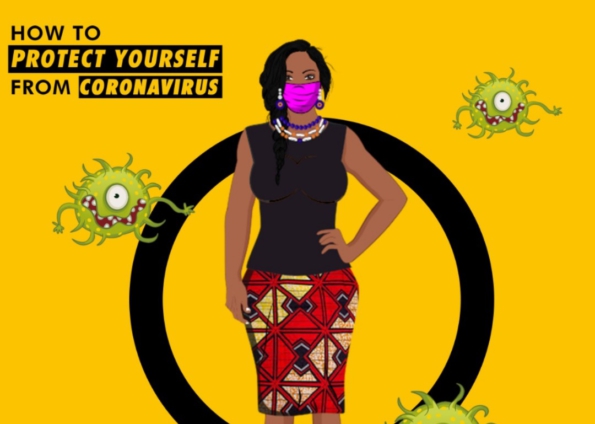The whole world is on a high alert following reports of the outbreak of coronavirus disease in China and it's rampant spread globally.
The World Health Organization (WHO), has declared the virus as a pandemic.
China has reported more than 17,000 cases of the disease and at over 360 people are reported to have died from it.
As of March 13, 2020, the World Health Organisation on its website reports 132,567 confirmed cases, 4,947 deaths and 123 countries and territories with these cases.
In Ghana, the Ministry of Information announced two confirmed cases of the COVID-19 virus, March 12, 2020.
While government action is necessary, there is a lot individuals can also do to stop the deadly disease from spreading and claiming lives.
The virus spreads when an infected person’s saliva or mucus falls on surfaces when they cough or sneeze.
When these are inhaled or picked up by others, the risk of contraction is almost immediate.
Some health centres have defined exposure as being within six feet of infected persons.
Meanwhile, here are tips to help you stay safe from the new virus.
Make handwashing a priority
Always endeavour to wash your hands regularly. Wet your hands with clear running water and soap. Lather your hands and scrub the back of your hands, between your fingers and under your nails. After this, rinse the lather off thoroughly and dry the water off.
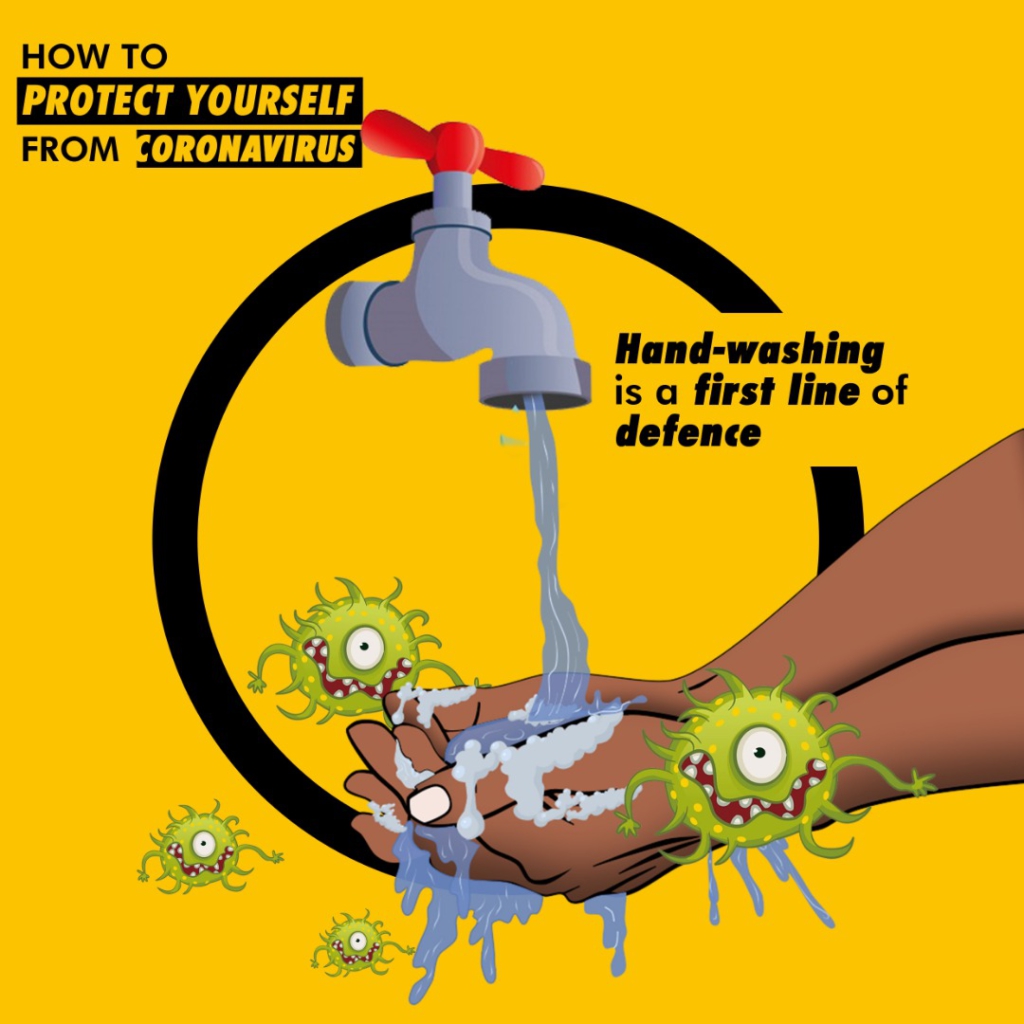
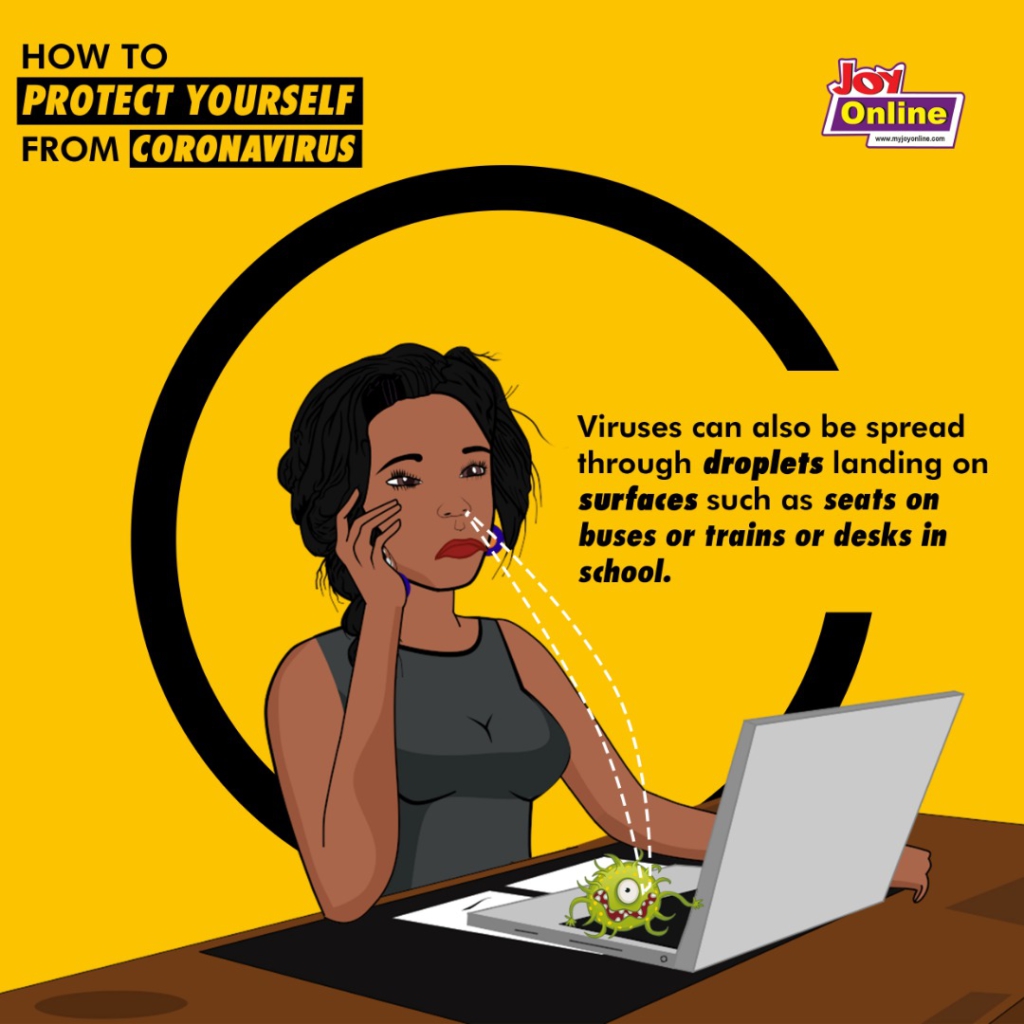
Always cover your mouth when coughing or sneezing
Make it a habit to cover your mouth with a tissue when you sneeze or couch to prevent the spread of the virus. Immediately after using the tissue, dispose of it immediately in a bin and wash your hand. In the absence of a tissue, cover your mouth with an elbow to prevent contact with others
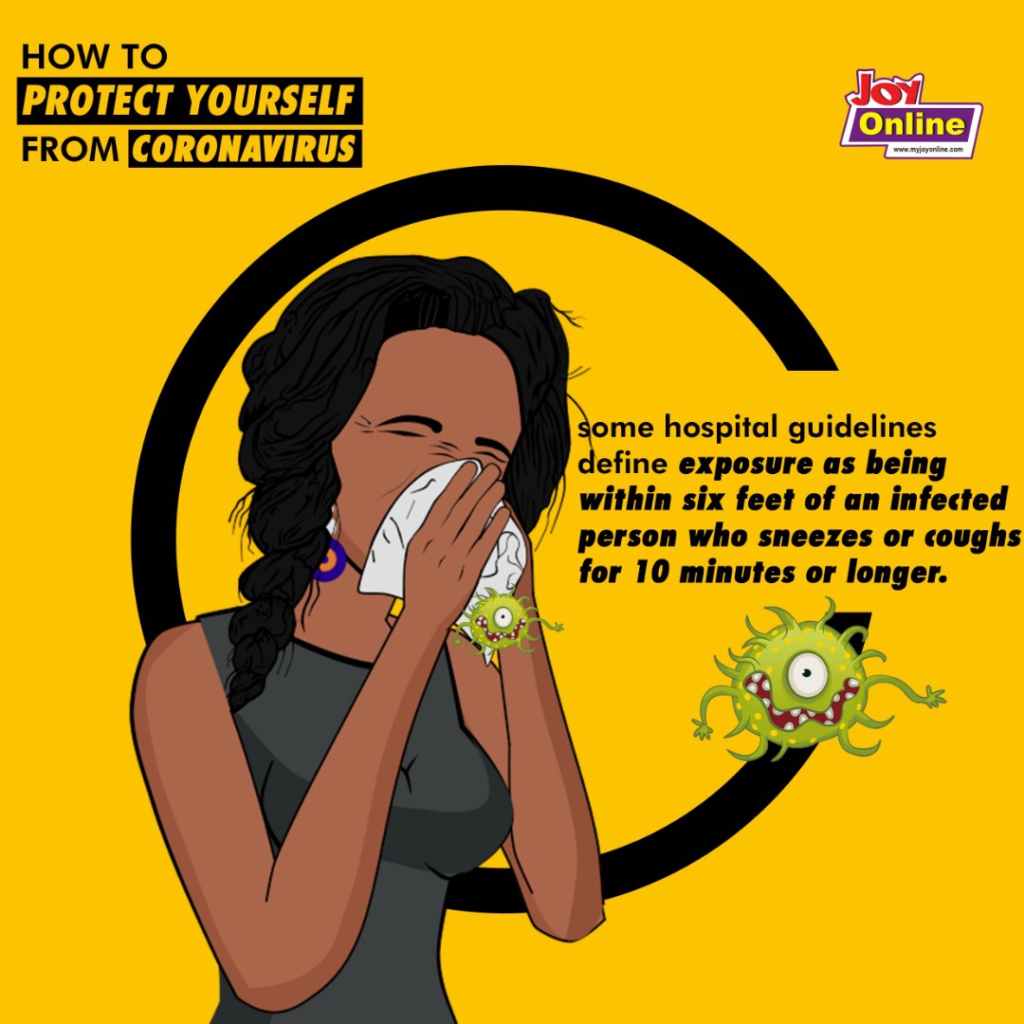
Face masks are an option
This offers some amount of safety as they block little droplet from escaping. However, the masks leave the eyes exposed and so far, there have been recorded cases of infection through the eye.
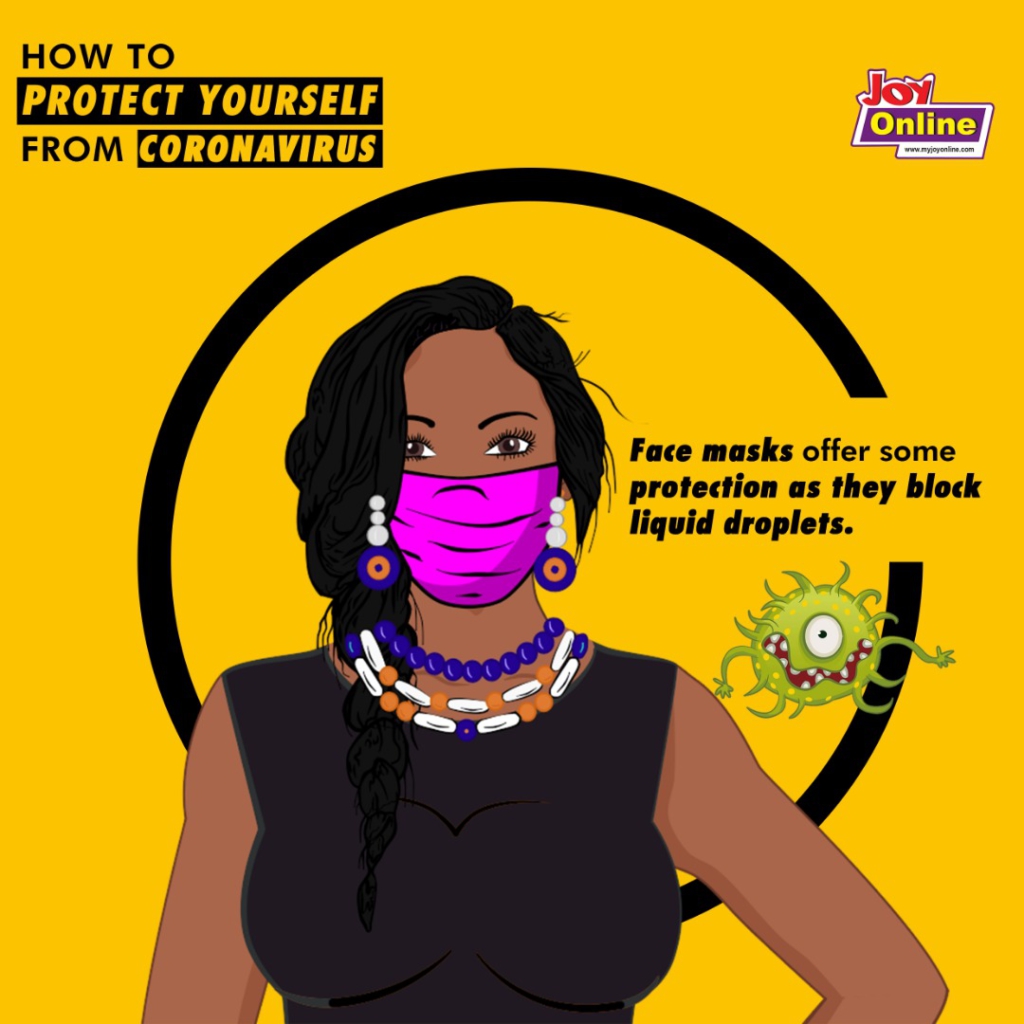
Report to a medical centre without delay
Quickly seek medical attention when you have fevers, cough and sudden breathing difficulty. It is also very important to share your recent travel history with medical professionals.
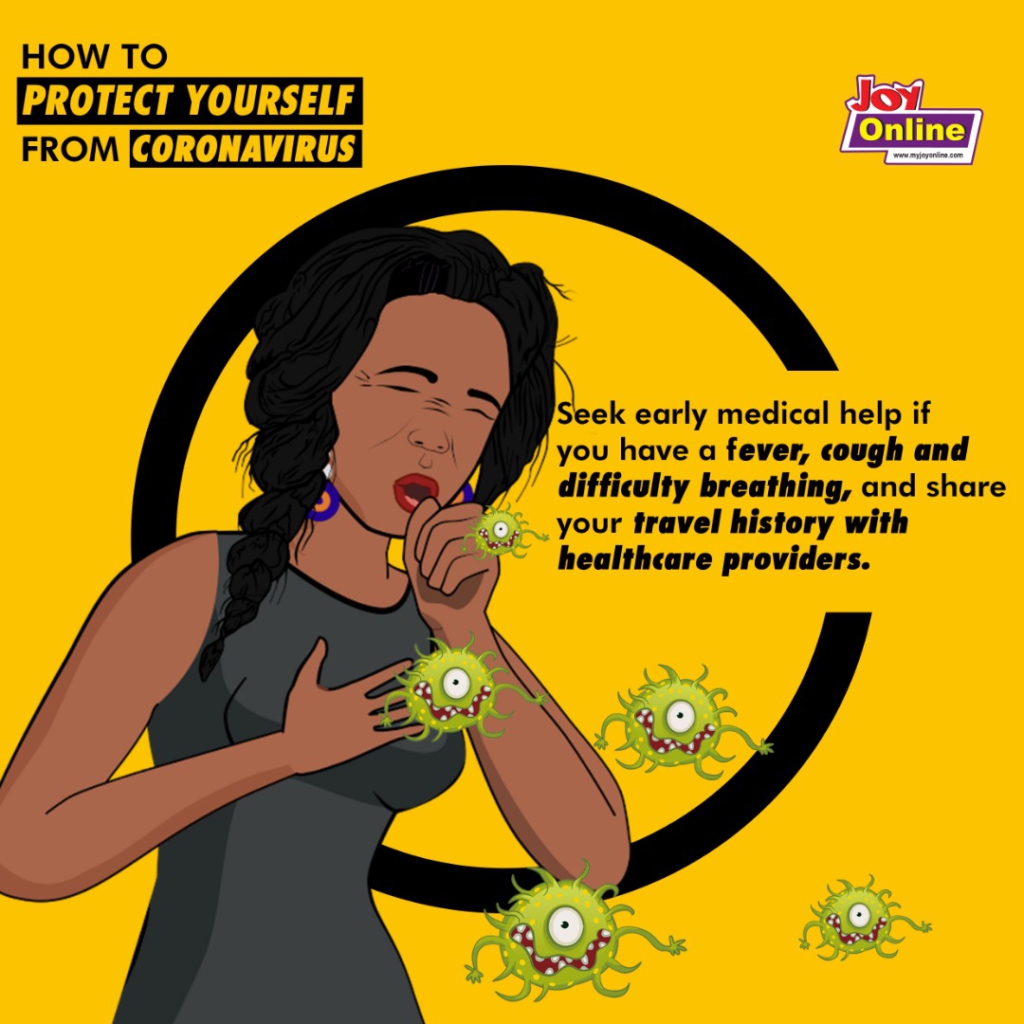
Avoid direct, unprotected contact with animals In affected areas, you must avoid touching live animals especially without any form of protection. Avoid eating raw or semi-cooked animal products in such areas as well.

If you have returned from any affected area in the world and have developed a sore throat, high temperature, runny nose or difficulty in breathing, don’t move outside your home until authorized by a healthcare provider.
Latest Stories
-
Ghana and Seychelles strengthen bilateral ties with focus on key sectors
30 mins -
National Elections Security Taskforce meets political party heads ahead of December elections
33 mins -
Samsung’s AI-powered innovations honored by Consumer Technology Association
53 mins -
Fugitive Zambian MP arrested in Zimbabwe – minister
1 hour -
Town council in Canada at standstill over refusal to take King’s oath
1 hour -
Trump picks Pam Bondi as attorney general after Matt Gaetz withdraws
2 hours -
Providing quality seeds to farmers is first step towards achieving food security in Ghana
2 hours -
Thousands of PayPal customers report brief outage
2 hours -
Gary Gensler to leave role as SEC chairman
2 hours -
Contraceptive pills recalled in South Africa after mix-up
2 hours -
Patient sues Algerian author over claims he used her in novel
2 hours -
Kenya’s president cancels major deals with Adani Group
3 hours -
COP29: Africa urged to invest in youth to lead fight against climate change
3 hours -
How Kenya’s evangelical president has fallen out with churches
3 hours -
‘Restoring forests or ravaging Ghana’s green heritage?’ – Coalition questions Akufo-Addo’s COP 29 claims
3 hours

